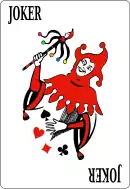ree
English
Pronunciation
- IPA(key): /ɹiː/
Audio (Southern England) (file) - Rhymes: -iː
Noun
ree (plural rees)
- Alternative form of rei
Etymology 2
From Middle English rei, reh, reoh, from Old English hrēoh (“rough, fierce, wild, angry, disturbed, troubled, stormy, tempestuous”), from Proto-Germanic *hreuhaz (“bad, wild”), from Proto-Indo-European *krewh₂- (“raw meat, fresh blood”).
Cognate with Scots ree, rae, ray (“ree”), Old Saxon hrē (“evil, bad, angry”), Gothic 𐌹𐌽𐍂𐌰𐌿𐌷𐍄𐌾𐌰𐌽 (inrauhtjan, “to become angry, rage against”). Related to Old English hrēaw (“raw, uncooked”). More at raw.
Alternative forms
- rie (Scotland)
Adjective
ree (comparative reer or more ree, superlative reest or most ree)
- (Now chiefly dialectal) Wild; fierce; outrageous; overexcited; frenzied; delirious; crazy.
- 1756, Calderwood, Margaret, “Mrs Calderwood's Journey”, in The Coltness Collections: MDCVIII-MDCCCXL, The Maitland Club, published 1842, page 222:
- "I saw,", says I, "he was a ree-brained divell, but thought nothing of it, as all the British are so when they come abroad."
-
- (Now chiefly dialectal) Befuddled with liquor; half-drunk; tipsy.
- 1839, Robertson, Joseph, The Book of Bon-Accord: or, A Guide to the City of Aberdeen, footnote, page 94:
- One of the witnesses speaks of having seen this sober judge "upon the bench, when he appeared to be ree, and as if he had been drunk the night before."
-
Synonyms
- (frenzied): frantic, frenetic, off the chain
- (half-drunk): buzzed, merry, squiffy; see also Thesaurus:drunk
Noun
ree (plural rees)
- (Now chiefly dialectal) A state of befuddlement; intoxication.
- (Now chiefly dialectal) A state of great excitement or frenzy.
Verb
ree (third-person singular simple present rees, present participle reeing, simple past and past participle reed)
- (intransitive, now chiefly dialectal) To become extremely excited; fly into a rage.
- (transitive, now chiefly dialectal) To drive into a state of excitement; fire with enthusiasm.
Etymology 3
Compare riddle (“a sieve”).
Verb
ree (third-person singular simple present rees, present participle reeing, simple past and past participle reed)
- (obsolete, UK, dialect) To riddle; to sift; to separate or throw off.
- 1707, J[ohn] Mortimer, The Whole Art of Husbandry; or, The Way of Managing and Improving of Land. […], 2nd edition, London: […] J[ohn] H[umphreys] for H[enry] Mortlock […], and J[onathan] Robinson […], published 1708, OCLC 13320837:
- After it is well rubbed and winnowed, you must then Ree it over in a fine Sieve , and if any of the Malt be uncleansed , then rub it again into the Sieve , 'till it be pure , and the rubbings will ariſe on the Top of the Sieve
-
Etymology 4
Probably from a rebracketing of ea with Old English þære, i.e. þære ēa becoming the ree.
Noun
ree (plural rees)
- (obsolete or Essex dialect) A small river or stream.
- 1768-9, Tobias George Smollett, The Present State of all Nations:
- The church of this pariſh, vulgarly called St. Mary Overy, from its dedication to the virgin Mary, and ſituation over the Ree or river, in reſpect of London, is a ſtately Gothic ſtructure, in the form of a cathedral.
- 1768-9, Tobias George Smollett, The Present State of all Nations:
Anagrams
- 'ere, -eer, EER, Ere, e'er, eer, ere
Afrikaans
Etymology
From Dutch ree, from Middle Dutch ree, from Old Dutch rēa.
Noun
ree (plural reë)
- roe, deer of the genus Capreolus
Derived terms
- reebok
Dutch
Pronunciation
- IPA(key): /reː/
Audio (file) - Hyphenation: ree
- Rhymes: -eː
Etymology 1
From Middle Dutch ree, from Old Dutch rēa, from Proto-West Germanic *raihō.
Noun
ree f or n (plural reeën, diminutive reetje n)
- The roe, Capreolus capreolus.
- Any deer of the genus Capreolus.
Derived terms
- reebeen
- reebok
- reegeit
- reekalf
- waterree
Descendants
- Afrikaans: ree
Etymology 2
Syncopic form of rede.
Noun
ree f (plural reeën)
- (now literary or dialectal) Alternative form of rede (“anchorage”).
Anagrams
- eer, ere
Esperanto
Etymology
re- + -e
Pronunciation
- IPA(key): [ˈree]
- Audio:
(file) - Rhymes: -ee
- Hyphenation: re‧e
Adverb
ree
- again
Derived terms
- reen
See also
- denove
Italian
Pronunciation
- IPA(key): /ˈrɛ.e/
- Rhymes: -ɛe
- Hyphenation: rè‧e
Adjective
ree f pl
- feminine plural of reo
Anagrams
- -ere, ere
Latin
Noun
ree m
- vocative singular of reus
Manx
Etymology
From Old Irish rí, from Proto-Celtic *rīxs, from Proto-Indo-European *h₃rḗǵs (“ruler, king”).
Noun
ree m (genitive singular ree, plural reeghyn or reeaghyn)
- king (monarchy, chess, card games, draughts)
- Jean eh cooie da ree. ― Make it fit for a king.
- Keayrt dy row va ree ayn. ― There was once a king.
- My vees yn ree hene eh, cha nel kiart echey ayns Mannin. ― King or no king, he has no right to be in Mann.
- T' eh jeh sluight reeghyn Vannin. ― He is descended from the kings of Mann.
Derived terms
- lhiass-ree (“regent, viceroy”)
- ree ny keylley (“oak”)
- ree ny marrey (“herring”)
- ree ruy (“bullfinch”)
- ree yn laa (“the sun”)
- shiast y ree
- shirragh y ree (“peregrine falcon”)
Swahili
Alternative forms
- rea
- rei
Pronunciation
Audio (Kenya) (file)
Noun
ree (n class, plural ree)
- (card games) ace
See also
| Playing cards in Swahili · karata za kucheza (layout · text) | ||||||
|---|---|---|---|---|---|---|
| ree, rea, rei | mbili | tatu | nne | tano | sita | saba |
 |  |  |  |  |  |  |
| nane | tisa | kumi | ghulamu, mzungu wa tatu | malkia, mzungu wa pili, bibi | mfalme, mzungu wa nne, basha | jokari |
Yola
Etymology
From Middle English rye, from Old English ryġe, from Proto-West Germanic *rugi.
Noun
ree
- rye
References
- Jacob Poole (1867), William Barnes, editor, A Glossary, With some Pieces of Verse, of the old Dialect of the English Colony in the Baronies of Forth and Bargy, County of Wexford, Ireland, London: J. Russell Smith, page 64